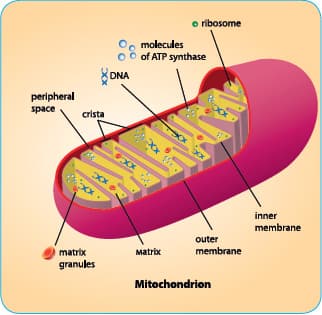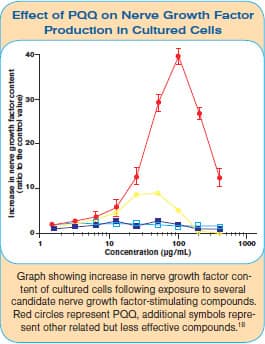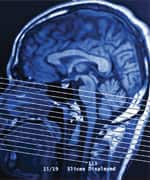
PQQ is the acronym for pyrroloquinoline quinone.
PQQ remains a little-known essential component of all living things.
It has not become a popular supplement because there currently is a limitation on the amount of PQQ that can be produced. Only a tiny fraction of the American population is able to access it now. That has not stopped scientific exploration into its biological effects.
Researchers are uncovering how PQQ functions as a neuroprotective agent that can help protect memory and cognition.
While only discovered about 50 years ago, scientists have been actively exploring the benefits of PQQ in healing the brain.
In an exciting new discovery, PQQ has been found to increase the formation of new nerve cells.
In addition, researchers have found that PQQ can promote growth of new mitochondria! This is an important longevity strategy that can help prevent the diseases of aging.
During the life span, the brain suffers from multiple sources of damage. As these effects accumulate, the result is often the development of neurodegenerative disorders, as well as the risk of stroke from progressive injury to brain blood vessels. Brain trauma is yet another way that the delicate microstructure of brain cells is disrupted, leading to loss of cognition and function.
PQQ has been found to help guard the brain against these major brain-threatening processes by a variety of mechanisms related to improving brain energy metabolism.
Threats to the Brain
While dementia, stroke, and brain injury may appear to be unrelated events, they all share fundamental processes that contribute to the eventual loss of brain cells and the decline in cognitive abilities.
Mainstream medicine tends to focus on managing each condition after it has emerged. By that time, much of the damage has already occurred. A more effective approach is to attack the underlying degenerative processes all at once, before irreversible damage is done.
That’s what PQQ does.
By launching an all-out attack on underlying pathologic processes, PQQ has been shown to help protect the brain from neurodegenerative diseases, stroke damage, and even the effects of traumatic brain injury.
Let’s examine the most common factors that contribute to aging brains and the impact that PQQ supplementation has against each of those factors. This provides an understanding as to how this molecule functions.
PQQ Promotes New Mitochondrial Formation

Recent studies corroborate the unique ability of PQQ to stimulate the formation of new mitochondria and improve the function of existing mitochondria.
It would be difficult to overstate the dramatic impact this has on the entire body, especially the brain. Mitochondria are responsible for converting the food we eat into the energy that powers cells to perform at peak function. Unfortunately, mitochondrial function declines with age. This decline has been linked to virtually all killer diseases of aging, including Parkinson’s and Alzheimer’s.
Creating new mitochondria is an important longevity strategy that can help ward off the diseases of aging.
Numerous preclinical studies show that PQQ rejuvenates mitochondrial function and restores mitochondria numbers. Importantly, this has led to the prevention of cognitive impairments, and was also shown to improve the gait disturbances seen in Parkinson’s disease.
An exciting human study has further demonstrated that PQQ supplementation improves mitochondrial function. A single dose of PQQ (equaling 13 mg for an average-sized adult) led to improved measurements of urinary oxidant levels (indicators of mitochondrial efficiency).
This team of scientists also evaluated the impact of a higher daily dose of PQQ supplementation after three days (equaling about 20 mg per day for an average-sized adult) and found that measurements of inflammation (such as C-reactive protein and interleukin-6) were decreased.
PQQ Promotes Nerve Cell Growth
In a stunning development, PQQ was found to stimulate previously unknown healing processes in the brain, leading to the formation of brand-new nerve cells. Nerve cells transmit messages throughout the body in order to regulate everything from the nervous system to organ function.
Laboratory experiments have determined that one of the ways PQQ promotes the development of new nerve cells is through stimulation of nerve growth factor (NGF) in brain cells. In fact, PQQ proved to be far superior to other molecules aimed at stimulating nerve growth factor in cultures of brain cells.
Nerve growth factor is a small protein molecule that is required for the development and maintenance of nerve cells, including many of the cells that are critical for memory, cognition, and learning.
Nerve growth factor is particularly important for maintaining nerve plasticity, the process by which nerve cells form connections in order to communicate with each other. Essentially, this is what allows us to engage in the process of learning and memory.
By stimulating the production and release of nerve growth factor in cells that support neurons, PQQ has been found to protect memory and cognition in aging animals and humans.
Lab experiments have shown PQQ’s ability to promote the healing of injured nerves.In one study, scientists inserted tubes containing PQQ into areas where nerves had been severed. New nerve tissue eagerly filled the gaps, increasing the number and diameter of individual fibers, effects not seen in control animals.
Another means by which PQQ impacts new nerve cell development is by protecting nerve stem and progenitor cells from oxidative damage. This allowed these cells to survive and potentially form new brain cells.
WHAT YOU NEED TO KNOW
 |
PQQ Provides Potent Neuroprotection
- The current global epidemic of cognitive decline and dementia threatens everyone’s hopes for healthy aging. There is also an increase in strokes and traumatic brain injury.
- The unique chemical compound called PQQ shows the ability to slow or reverse cognitive decline and dementia by targeting a variety of mechanisms.
- Lab studies and animal experiments demonstrate that PQQ promotes brain cell survival and improves cognitive function by protecting cellular metabolic processes and enhancing nature’s own healing and protective mechanisms.
- PQQ should form an important part of a supplementation regimen for those concerned about supporting and preserving brain health.
PQQ Protects against Oxidative Damage
Numerous studies demonstrate that PQQ improves brain function.
Improvements in learning ability and memory were seen in rats supplemented with PQQ. Researchers attribute this to PQQ’s ability to reduce oxidative damage.
These results were confirmed in a later study of healthy older rats. In this study, PQQ was found to boost the ability of older rats to learn new information and help the animals use that memory after a prolonged period. The researchers attributed this increase both to relief of oxidative damage and also to enhanced production of nerve growth factor.

Neurodegenerative Diseases
Oxidative damage is one of the key factors leading to neurodegenerative diseases. Studies have demonstrated that PQQ’s ability to fight oxidative damage makes it of special interest in treating Parkinson’s disease.
Lab studies show that in the presence of PQQ, cells exposed to a toxin that induces oxidative damage are protected against death and fragmentation of their DNA. This demonstrates its potential use against Parkinson’s.
Ischemic Stroke
PQQ could also play an important role in protecting the brain from the devastation of a stroke.
An ischemic stroke occurs when the loss of blood supply to a specific area of the brain deprives the brain of the essential nutrients/oxygen it needs. The result is brain cell death and loss of function reflected in the region of the brain where the damage occurred. Depending on the area affected, this can result in paralysis, memory impairment, and even death.
In lab studies, PQQ reduced ischemic damage, potentially improving the quality of life following a stroke.
This was clearly demonstrated in an animal model of ischemic stroke. When PQQ supplementation was given beforeischemia was induced, it significantly reduced the size of the damaged brain tissue region. Surprisingly, PQQ had a similar protective effect even when it was administered after the ischemia was induced.
Another study showed similar neuroprotective effects. It also showed that PQQ led to significantly improved neurobehavioral scores after the stroke.These findings are tremendously exciting for those working in the area of human stroke prevention and treatment. The implication is that stroke patients could be given PQQ in the emergency room and reduce paralyzing brain damage.
PQQ Reduces Harmful Neuroinflammation

Neuroinflammation directly damages brain cells and accelerates the aging process.
Chronic, low-grade inflammation of the brain is common to many neurodegenerative diseases. It also occurs following a stroke and traumatic brain injury. Other causes of neuroinflammation include infection, oxidative damage, and the effects of high glucose levels.
Studies show that PQQ supplementation markedly reduces harmful neuroinflammation. One of the ways it does this is by inhibiting the production of two pro-inflammatory signaling molecules.
Neuroinflammation is especially damaging following a traumatic brain injury. In a recent study conducted at the University of Maryland School of Medicine, the researchers argued that inflammation is to blame for many of the symptoms of traumatic brain injury, including brain atrophy and cognitive decline.
Fortunately, an animal study published in the Journal of Neurotrauma shows that by protecting against neuroinflammation, PQQ can help to protect against some of the effects of traumatic brain injury.
PQQ Protects against Excitotoxicity
Excessive glutamate stimulation of brain cells, or excitotoxicity, is a major factor in the development of long-term neurodegenerative disorders, stroke, and schizophrenia.
Glutamate-induced excitotoxicity triggers undesired programmed cell death (apoptosis).
Glutamate-induced excitotoxicity triggers undesired programmed cell death (apoptosis).
Fortunately, not only can PQQ help protect against the damaging effects of excitotoxicity, it can also help prevent it from occurring to begin with.
Studies of cultured cells from the hippocampus (the brain’s major memory-processing center) reveal that PQQ reversesoxidative damage caused by excitotoxicity. PQQ accomplishes this by turning on protective genes and signaling molecules that protect brain cells. PQQ also modulates the cellular receptor that triggers an excitatory response. This helps to prevent these dangerous responses from occurring in the first place.
In a powerful study demonstrating PQQ’s protective effects against excitotoxicity, researchers directly injected rat brains with glutamate. As expected, oxidative damage rose abruptly and brain cells began to die off because of the glutamate surge.
However, when rats were given glutamate and PQQ at the same time, it produced an entirely different picture. The presence of PQQ significantly reduced cell death and decreased oxidative damage. As an added benefit, PQQ increased the expression of a host of intracellular protective systems and growth factor regulators, resulting in both protection from damage and a head start on recovery.
PQQ Prevents Glucose-Induced Brain Damage
One of the least-known consequences of the diabetes epidemic is damage to brain cells from chronic exposure to elevated blood sugar levels. It is alarming that people with diabetes are 60% more likely to develop dementia. In addition, the elevated insulin levels associated with diabetes may also contribute to neurological damage. This has led many scientists to refer to Alzheimer’s disease as “type III diabetes.”
PQQ can help protect the brain against the damage caused by high blood sugar. When researchers exposed cells from brain blood vessels in the lab to high blood sugar concentrations, it resulted in high rates of cell death.However, when PQQ was added to the cells’ growth medium, it reversed the high-glucose damage, suppressed cell death, andreduced the production of dangerous reactive oxygen species.
These protective effects were also seen in animal studies. In fact, PQQ, at a dose equivalent to about 100 mg in a human, significantly reversed brain cell damage in diabetic mice.44 The recommended dose of PQQ supplementation for aging humans is 20 mg each day.
PQQ Inhibits Malformed Brain Proteins

One of the main contributing factors in the development of Alzheimer’s and Parkinson’s diseases is the accumulation of malformed proteins. In Alzheimer’s, these are collectively referred to as beta amyloid. Beta amyloid proteins cause a tremendous amount of damage and ultimately kill brain cells.
When PQQ was applied to brain cells in culture, it showed impressive abilities to save and revive dying cells. PQQ reversed the toxicity of beta amyloid proteins, prevented the death of brain cells, reduced oxidative damage caused by this malformed protein, and revived those cells that had begun to die.45
In Parkinson’s disease, the abnormal protein deposits in the brain contain tangled fibrils of a protein called alpha-synuclein that is toxic to brain tissue. PQQ prevents the formation of these cell-killing fibrils, which helps protect cells against oxidative damage.
Excitement is growing in the scientific community about PQQ’s ability to inhibit the formation of toxic protein fibrils in both Alzheimer’s and Parkinson’s diseases.
Summary
Loss of brain function leads to cognitive decline, memory loss, and a gradual diminution of the self.
While neurodegenerative diseases, strokes, and brain injury appear to be different processes, a look at the cellular events involved show remarkable similarities.
Mainstream medical practice believes these degenerative processes are inevitable. The result is most physicians focus only on clinical endpoints, which is rarely successful in restoring lost cognitive function.
A more rational approach is to address the fundamental problems of neurodegeneration together, with the aim of preventing further damage and restoring what can still be repaired.

